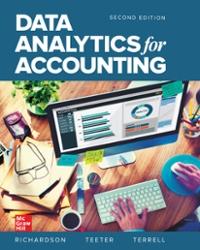Question
Question 7 As a policymaker, which problem can you address by introducing a voucher system in education? a.The tendency of school boards to engage in
Question 7
As a policymaker, which problem can you address by introducing a voucher system in education?
a.The tendency of school boards to engage in 'cream skimming' of the best students
b.Social inequality that results from unequal access to information about good schools
c.The inefficient use of resources available to schools
d.The lack of resources faced by many schools
Question 8
The economist Nicholas Barr argues that '[E]ducation is a poor instrument of income redistribution.' (quote based on Jensen 2011: 412).
What is the rationale behind this argument?
a.There are few failures in educational markets, so governments should not interfere too much for equity purposes
b.Spending resources on education is not effective to achieve equality, since inequalities already take shape in the first two years of children's life
c.Education is about nurturing human capital, which is not equally distributed
d.Spending resources on education is a regressive use of tax-income
Question 9
Nicholas Barr arrives at very different conclusions as to which state interventions are appropriate in basic education (i.e. primary and secondary education) and higher education (like universities) respectively.
Which of the following statements aligns with his reasoning?
a.Making higher education free of charge is not just inefficient, it is also not fair
b.Since there are no market failures in higher education, there is no justification for state interventions in this area
c.State intervention in basic education - both through production and financing - is justified because basic education is a public good
d.Parents are generally only willing to finance basic education, not higher education
Question 16
Due to the Covid-19 crisis, the Dutch government spends more than anticipated on unemployment benefits. Within the constraints of trend-based fiscal policy, which of the following initiatives can be used to compensate for these unexpected expenditures?
a.Raising income taxes
b.Increasing public debt through government borrowing
c.Postponing investments in active labour market policies
d.Postponing investments in football stadia
Question 17
In which of the following cases can the "Excessive Debt Procedure" can be initiated?
a.When the national debt has exceeded 70% of GDP
b.When a country does not balance out its budget surplus and deficit
c.When debt is increasing abruptly from 20% to 50% of GDP
d.When new taxes are not approved by the European Commission
Question 18
When would a 'mandated choice' be preferable?
a.When nudging is insufficient to achieve the intended outcome
b.When the choice architect does not want to presume a particular preference
c.When the choice architect has insufficient information on how people respond to
nudging
d.Never
Question 19
What is the best definition of "choice architecture"? a. The organization of information on basis of which decisions are made
b. The framing of choices to compensate for unpredictable behaviour c. The design of the context in which people make choices d. The selection of choices available to decision-makers
Question 20
Which of the following examples counts as a 'good nudge' towards road safety (according to Sunstein & Thaler)?
1.Offering tax incentives for purchasing a safer model of children safety seats 2.Using smart number plate recognition software to better enforce speed limitation
a.Only option 1 b.Only option 2 c.Both options 1 and 2
d. Neither option 1 or 2
Step by Step Solution
There are 3 Steps involved in it
Step: 1

Get Instant Access to Expert-Tailored Solutions
See step-by-step solutions with expert insights and AI powered tools for academic success
Step: 2

Step: 3

Ace Your Homework with AI
Get the answers you need in no time with our AI-driven, step-by-step assistance
Get Started


